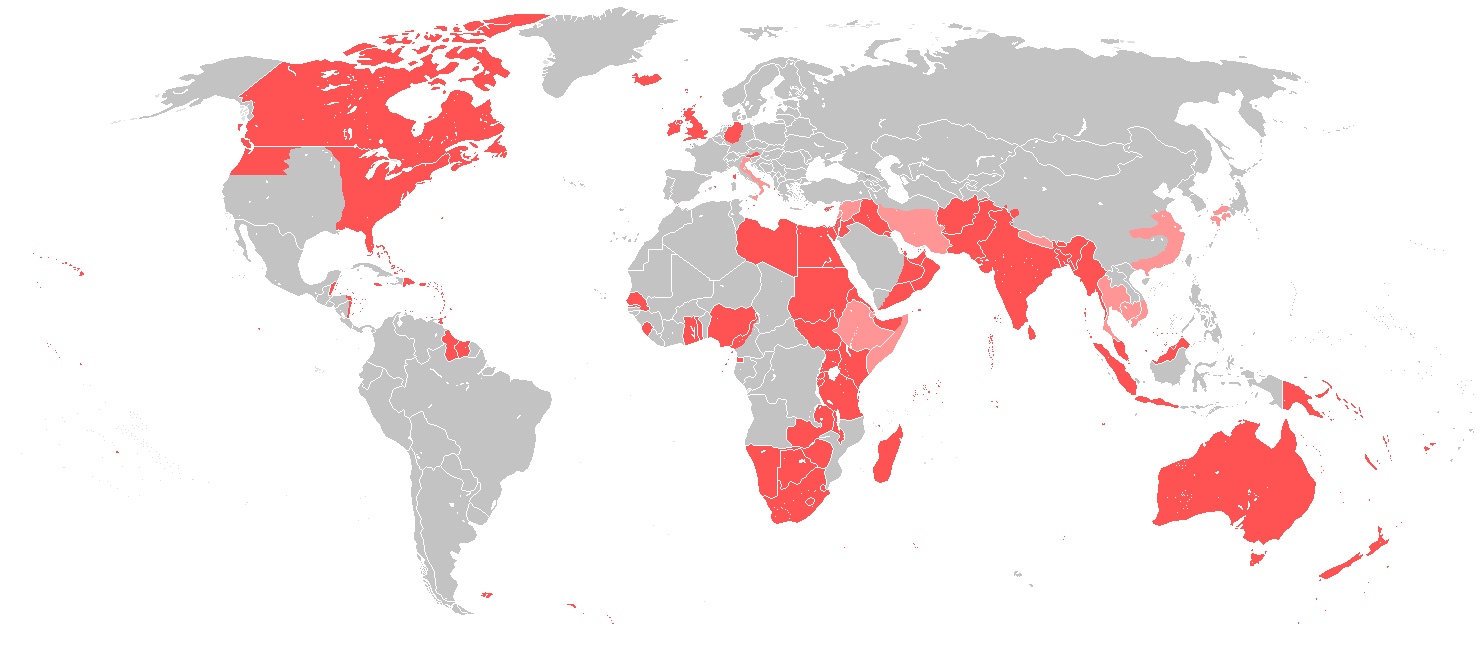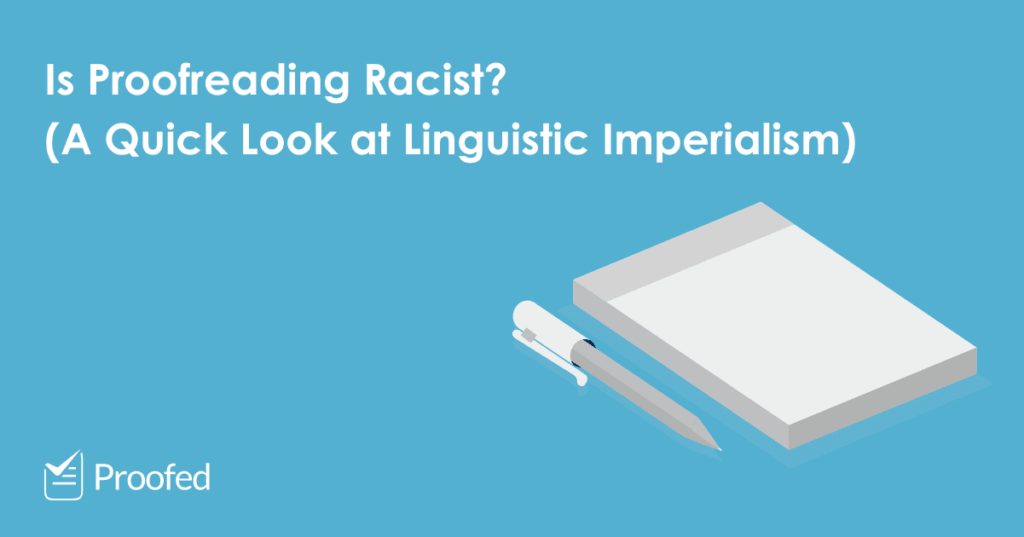Proofreading often involves correcting non-standard English. But if it erases minority voices by demanding that everyone writes in the same way, does that make proofreading racist? Or is this an oversimplification?
This is a complex topic and not one we can fully cover in a blog post! However, we will have a quick look at the ideas of standard English and linguistic imperialism, as well as how these reflect on proofreading in relation to current debates about racial and social justice.
What Is Standard English?
When we refer to standard English, we mean a form of English with well-established conventions for correct use. It is also the mainstream form of English used for official reasons (e.g. education, government documents).
There are, of course, regional variations of standard English (e.g. Australian vs. American English). But any ‘standard’ English dialect is the official form for its region, providing a benchmark for ‘correct’ usage.
Historically, though, the gatekeepers of standard English have been academics, authors, publishers, and other establishment figures. As such, we might want to question how standardising English affects writers who have often been excluded from such establishment positions, including people from communities where standard English isn’t always… well, standard.
Does standardising English marginalise those who grow up using another dialect or way or speaking? How about people from working class or minority ethnic backgrounds? To answer these questions, let’s take a quick detour via the topic of linguistic imperialism.
What Is Linguistic Imperialism?
Linguistic imperialism is a term used for imposing a language on a group of people. This is especially relevant to English, a language now used around the world in part because of the British Empire, which often required subjects of colonised countries to learn English.

We see this imposition of English in many places in many forms. In India, for instance, anyone who wanted to succeed under the British Raj had to learn English. And even in the UK, children in Wales were once beaten for speaking Welsh, a language the English government considered ‘evil’.
But even without this direct violence, the status of English as a lingua franca for international business and culture can be problematic. A key claim in this respect is that the spread of English has marginalised non-English voices and cultures. To be part of our increasingly globalised world, you need to speak English. And this means that some may view other languages as inferior.
English-Language Proofreading as the British Empire
So, what does all this have to do with proofreading? Well, we can look at proofreading as being like the British Empire, imposing the linguistic standards of a dominant group (i.e. standard English) on a marginalised one (i.e. those without training in formal English).
Find this useful?
Subscribe to our newsletter and get writing tips from our editors straight to your inbox.
This differs from linguistic imperialism in the strict sense because we’re talking about two forms of English, not two different languages. But it works in a similar way if we see proofreading as the process of making authors writing conform to standard English spellings, grammar, and punctuation.
After all, this is how proofreading formal writing often works. When editing an essay or business document, for instance, a proofreader would usually treat non-standard English as an error, or at the very least as inappropriate for a formal document. And what is this if not forcing the author to conform to the linguistic standards of the establishment?
But this isn’t really what proofreading is about, as we will explain below.
The Big Question: Is Proofreading Racist?
Back to our original question: If demanding that everyone uses language in the same way is problematic, and proofreading involves correcting non-standard English… does that make proofreading racist?
The short answer is ‘Not if you do it right’.
If you’re proofreading a novel, for instance, part of the job is preserving the author’s voice. And if non-standard dialect or slang terms are part of that voice, we would not replace them with standard English. Editing non-standard English in cases like this would be problematic on two levels:
- It slips into linguistic imperialism, since it erases an alternative voice (typically a minority voice in English writing) in favour of standard English.
- It ignores the intentions of the author and the reasons they chose to use non-standard English in the first place, making it bad proofreading.
Good proofreading, on the other hand, is about helping writers express themselves. This may mean helping an author to use standard English in a formal document (e.g. a university essay) or to help make their work accessible to a wider audience. But this is something we do with the author’s permission, not something we impose on a document.
So, yes, imposing standard English regardless of the situation would be bad. But proofreading is not inherently racist as long as it takes the voice and intentions of the author into account. When done well, it can even level the playing field for those who are less familiar with the rules of formal English (e.g. by ensuring a resume and cover letter follow standard English conventions, giving the client a better chance of landing a job).
And if you have any specific requests when it comes to non-standard English in a document, our proofreaders will always work to meet your needs.



